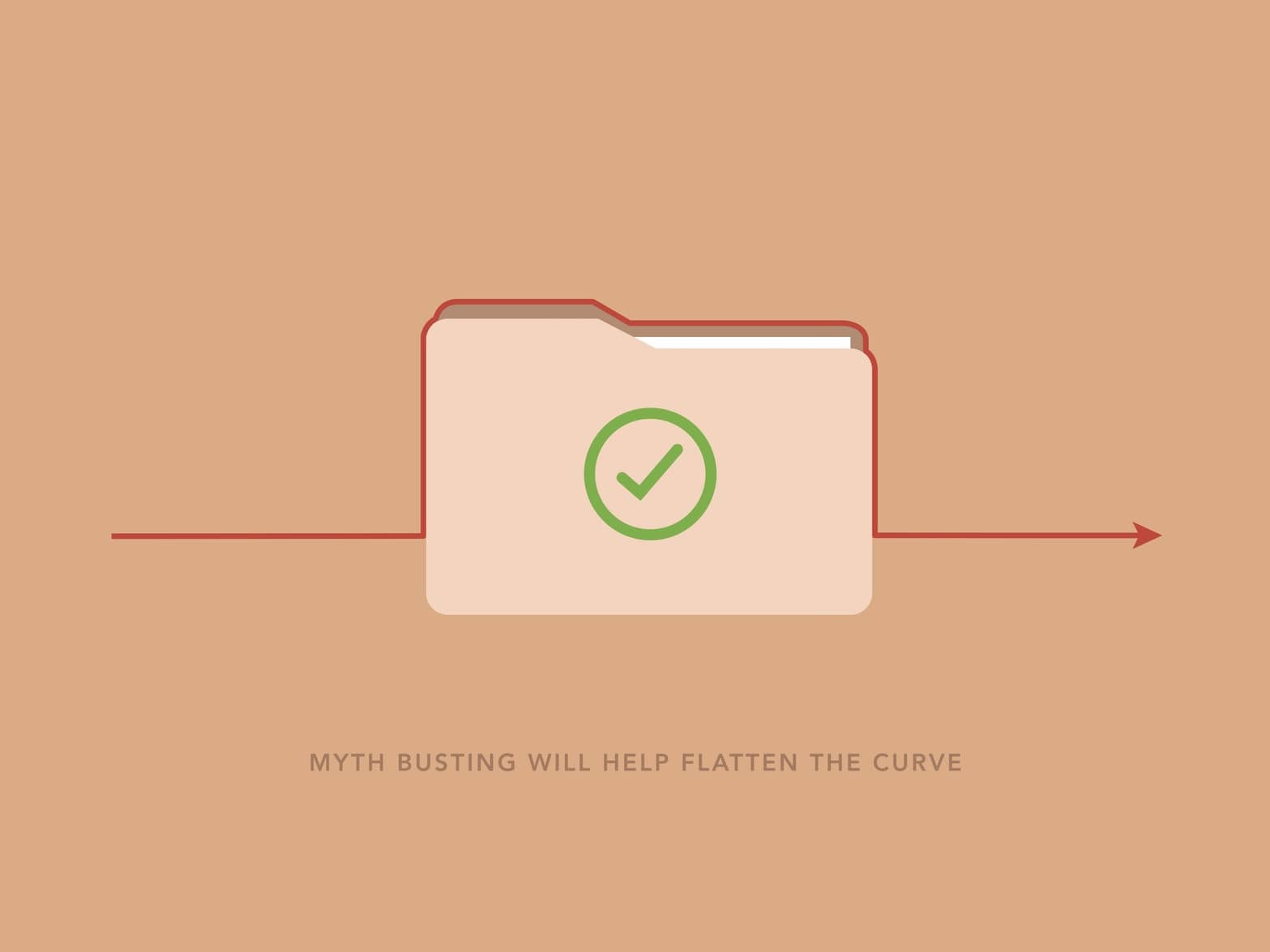Prime Minister Boris Johnson last night (Monday) made an address to the nation with details of new measures to stop the spread of Coronavirus (Covid-19) across the country.
As News OnTheWight has regularly highlighted, the number of positive tests, hospitalisations and deaths on the Isle of Wight remains one of the lowest in the country.
Three new Covid Alerts
The PM announced that three new levels of Covid Alerts will be introduced from Wednesday (14th October); medium, high and very high.
Most areas in England will be on Medium alert level, including the Isle of Wight. The Isle of Wight council will be issuing local guidance later today.
A brief outline of the rules for the three alert areas reads (see in more detail below):
- Medium, with existing national measures such as the Rule of Six and the closure of hospitality at 10pm.
- High, with extra measures including a ban on indoor social mixing between households or support bubbles.
- And Very High, for places where, without further action, the NHS will swiftly be under intolerable pressure.
See the full list of areas that have been placed on High and Very High alert levels.
The slides
During the press conference, the Chief Medical officer, Professor Chris Whitty shared the following slides, which show the Isle of Wight (within the South East region) as continuing to have low Covid-19 rates.
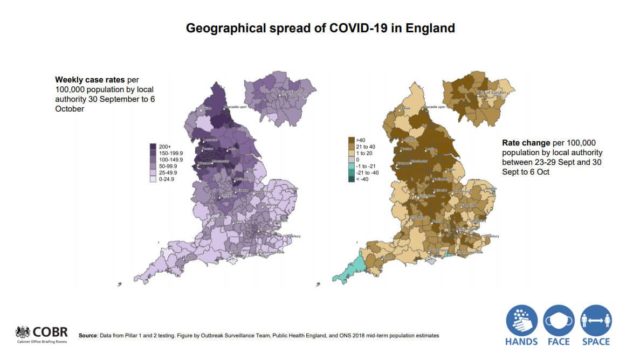
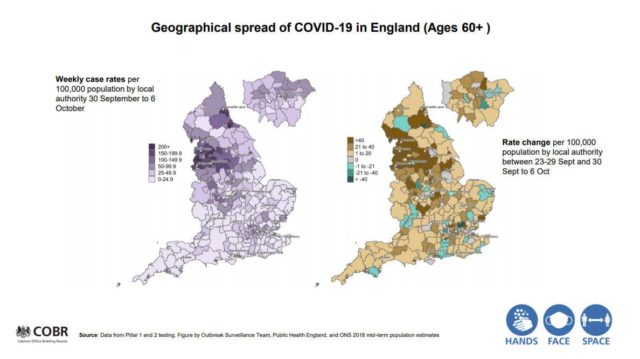
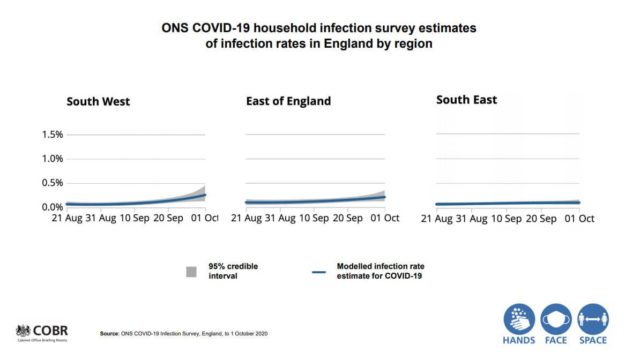
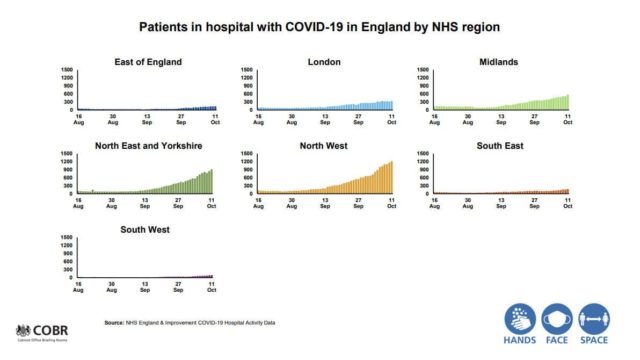
Local Covid alert level: medium
This means:
- you must not socialise in groups larger than 6, indoors or outdoors (other than where a legal exemption applies)
- businesses and venues can continue to operate, in a COVID-secure manner, other than those that remain closed in law
- certain businesses are required to ensure customers only consume food and drink while seated, and must close between 10pm and 5am
- businesses and venues selling food for consumption off the premises can continue to do so after 10pm as long as this is through delivery service, click-and-collect or drive-through
- schools and universities remain open
- places of worship remain open, subject to the rule of 6
- weddings and funerals can go ahead with restrictions on numbers of attendees
- exercise classes and organised sport can continue to take place outdoors, or indoors if the rule of 6 is followed
You must:
You should continue to:
- follow social distancing rules
- work from home where you can effectively do so
- when travelling, plan ahead or avoid busy times and routes. Walk or cycle if you can
Local Covid alert level: high
This is for areas with a higher level of infections where some additional restrictions are in place.
This means on top of restrictions in alert level medium:
- you must not socialise with anybody outside of your household or support bubble in any indoor setting, whether at home or in a public place
- you must not socialise in a group of more than 6 outside, including in a garden or other spaces like beaches or parks (other than where specific exemptions apply in law)
- businesses and venues can continue to operate, in a COVID-secure manner, other than those that remain closed in law
- certain businesses are required to ensure customers only consume food and drink while seated, and must close between 10pm and 5am
- businesses and venues selling food for consumption off the premises can continue to do so after 10pm as long as this is through delivery service, click-and-collect or drive-through
- schools, universities and places of worship remain open
- weddings and funerals can go ahead with restrictions on the number of attendees
- exercise classes and organised sport can continue to take place outdoors. These will only be permitted indoors if it is possible for people to avoid mixing with people they do not live with or share a support bubble with, or for youth or disability sport
- you can continue to travel to venues or amenities that are open, for work or to access education, but should look to reduce the number of journeys you make where possible
You must:
You should continue to:
- follow social distancing rules
- work from home where you can effectively do so
- walk or cycle where possible, or plan ahead and avoid busy times and routes on public transport
Local Covid alert level: very high
This is for areas with a very high level of infections and where tighter restrictions are in place. The restrictions placed on areas with a very high level of infections can vary, and are based on discussions between central and local government. You should therefore check the specific rules in your area.
At a minimum, this means:
- you must not socialise with anybody you do not live with, or have formed a support bubble with, in any indoor setting or in any private garden or at most outdoor hospitality venues and ticketed events
- you must not socialise in a group of more than 6 in an outdoor public space such as a park or beach, the countryside, a public garden or a sports venue
- pubs and bars must close. They can only remain open where they operate as if they were a restaurant, which means serving substantial meals, like a main lunchtime or evening meal. They may only serve alcohol as part of such a meal
- schools and universities remain open
- places of worship remain open, but household mixing is not permitted
- weddings and funerals can go ahead with restrictions on the number of attendees. However, wedding receptions are not allowed
- exercise classes and organised sport can continue to take place outdoors. These will only be permitted indoors if it is possible for people to avoid mixing with people they do not live with (or share a support bubble with), or for youth or disability sport
- you should try to avoid travelling outside the very-high alert level area you are in or entering a very-high alert level area, other than for things like work, education or youth services, to meet caring responsibilities or if you are travelling through as part of a longer journey
- you should avoid staying overnight in another part of the UK if you are resident in a very-high alert level area, or avoid staying overnight in a very-high alert level area if you are resident elsewhere
You must:
You should continue to:
- follow social distancing rules
- work from home where you can effectively do so
- travel to venues or amenities that are open, for work or to access education, but aim to reduce the number of journeys you make
This is the baseline in very-high alert level areas. The government will also seek to agree additional interventions in consultation with local authorities, in order to drive down transmission of the virus. These could include the following options:
- restrictions preventing the sale of alcohol in hospitality or closing all hospitality (except takeaway and delivery)
- closing indoor and outdoor entertainment venues and tourist attractions
- closing venues such as leisure centres and gyms (while ensuring provision remains available for elite athletes, youth and disabled sport and physical activity)
- closing public buildings, such as libraries and community centres (while ensuring provision remains available for youth and childcare activities and support groups)
- closing personal care and close contact services or prohibiting the highest-risk activities
- closing performing arts venues for the purposes of performing to audiences
Read the PM’s speech in full.
Testing on the Isle of Wight
Residents with the specific Covid-19 symptoms should request a test – but if you are told to travel to mainland, ignore that and try again later to ensure you are tested on the Isle of Wight.
The main symptoms of Coronavirus are:
- a high temperature – this means you feel hot to touch on your chest or back (you do not need to measure your temperature)
- a new, continuous cough – this means coughing a lot for more than an hour, or 3 or more coughing episodes in 24 hours (if you usually have a cough, it may be worse than usual)
- a loss or change to your sense of smell or taste – this means you’ve noticed you cannot smell or taste anything, or things smell or taste different to normal
Most people with Coronavirus have at least one of these symptoms. Book via the NHS.
See the Isle of Wight council’s updates on Coronavirus.
Image: united nations under CC BY 2.0

